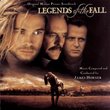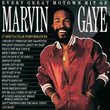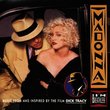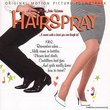| All Artists: Elmer Bernstein Title: Far from Heaven (Score) Members Wishing: 0 Total Copies: 0 Label: Varese Sarabande Original Release Date: 11/22/2002 Re-Release Date: 11/5/2002 Album Type: Soundtrack Genres: Pop, Soundtracks Style: Number of Discs: 1 SwapaCD Credits: 1 UPCs: 030206642124, 4005939642129 |
Search - Elmer Bernstein :: Far from Heaven (Score)
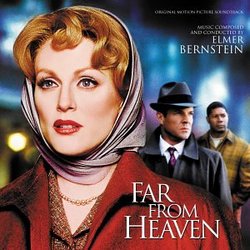 | Elmer Bernstein Far from Heaven (Score) Genres: Pop, Soundtracks
With typical verve, director Todd Haynes's film not only seeks to evoke Douglas Sirk's social-themed Hollywood melodramas of the '50s, but to bring an entirely new one to life with a distinct lack of modern irony. In telli... more » |
Larger Image |
CD DetailsSynopsis
Amazon.com With typical verve, director Todd Haynes's film not only seeks to evoke Douglas Sirk's social-themed Hollywood melodramas of the '50s, but to bring an entirely new one to life with a distinct lack of modern irony. In telling the story of a Connecticut couple whose "perfect" relationship masks taboo undercurrents of homosexuality and interracial love, Haynes has found the perfect musical collaborator in 50-plus-year film scoring veteran Elmer Bernstein. The composer manages a deft tightrope act here, managing to inform Haynes's film-out-of-time with the same delicate, emotionally compelling sensibility he brought to his classic score for To Kill a Mockingbird, while steering clear of emotional treacle and obvious musical anachronisms. Anchored by a spare, ethereal piano theme (performed with sympathetic grace by Cynthia Millar) and colored with melancholy woodwind figures and restrained string flourishes, Bernstein's music still manages a back-to-the-future pastoralism that firmly underscores the film's timeless subtexts. It's a masterpiece of autumnal understatement by one of Hollywood's true living legends. --Jerry McCulley Similarly Requested CDs
|
CD ReviewsA brilliant score... Reminiscent of 50s film scoring ! P. Longworth | Newcastle, AUSTRALIA | 11/26/2002 (5 out of 5 stars) "In contrary to the other readers' opinions, I found Bernstein's score a real 'charmer'. It sounds very 50s, and is deserving of the glowing accolades it has received in the media. This score is one of my favourite Elmer Bernstein scores. The quality of this score leaves modern scores for dead. If only film music would return to the golden -silver era once again. If this score doesn't get an Oscar nomination, I'll be very disappointed.Peter.." A Masterpiece Christian Kuehn | 11/22/2002 (5 out of 5 stars) "50 years in the business and still on the top of his game...Elmer Bernstein has written a flawless masterpiece with Far from Heaven. Harkening to a more or less innocent time and to his own score for To Kill a Mockingbird, Bernstein has provided us score-fans with what is as of yet the best score of 2002.Amazing." Close to Heaven Kathy Fennessy | 02/26/2003 (5 out of 5 stars) "Like Douglas Sirk ("All That Heaven Allows"), whose lush Technicolor weepies served as inspiration, director Todd Haynes ("Poison," "Safe") doesn't define melodrama as "overdone" or "overblown," but according to its strict Latin components: as a union between music ("melos") and drama. Accordingly, he hired one of Hollywood's most respected composers, Elmer Bernstein ("The Sweet Smell of Success," "The Man With the Golden Arm"), to provide the all-important soundtrack for "Far From Heaven."
In the film, fashionable homemaker Cathy Whitaker is played by a blonde Julianne Moore. Dennis Quaid, in his "comeback" role, plays her ad exec husband, Frank, while Dennis Haysbert (the president on TV's "24") is Raymond, the sympathetic black gardener Cathy turns to when her picture-perfect life starts to come undone. The score begins and ends with a similar cue; both "Autumn in Connecticut," where the film is set, and "Beginnings" rely on piano for most of their emotional impact. The distinctive--but never overbearing--cue is repeated throughout, with other instruments, like violin, coming to the fore. There are a few playful detours along the way. "Cathy and Raymond Dance," for instance, appears to be a riff on "As Time Goes By," while "Miami" has a light samba feel. Like the film, Bernstein's score doesn't parody 1950s melodramas, but evokes the genuine article, and "Far From Heaven" ranks among his best work." |

 Track Listings (22) - Disc #1
Track Listings (22) - Disc #1